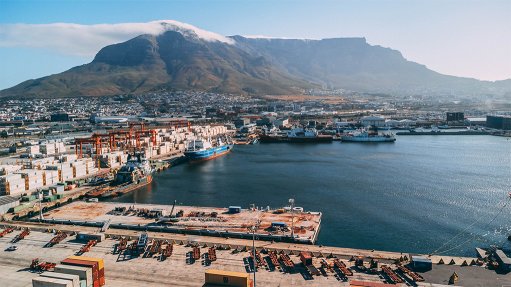New policy set to spur Nigerian auto sector
By: Dawn Dimowo
In the 1980s, the Peugeot was arguably one of the most popular brands in Nigeria, and Peugeot Automobile Nigeria (PAN) assembled the cars at its factory in Kaduna.
The cars were advertised as ‘Built for Nigerian roads’, a reference to their safety and durability. Production by PAN petered out in the late 1990s and then the company shut down completely, as did the few other manufacturers in the market, the result of unfavourable economic policies, which stifled the import of automotive parts. Since then, Nigeria’s complete dependence on imported cars, new or used, has grown and grown.
Fast-forward 20 years and PAN is back to producing in Nigeria. So, what has changed?
According to the National Automotive Council, upwards of 50 000 new and 150 000 used cars are still imported every year, and these figures will be much higher if unofficial channels of imports are factored in. Clearly, demand has grown, and is growing, but, more importantly, government has turned its economic transformation focus to the automotive industry.
Last year, it announced a National Automobile Industry Development Plan (NAIDP) geared towards promoting local manufacturing and creating jobs; this became effective on July 1. A key element of the policy is an increase in taxes on imports of both new and used cars, up to 70% in the case of sedan cars, for which there is the highest demand. This fits in perfectly with the Nigerian government’s focus on promoting local content and specifically with the current drive by the Ministry of Trade and Investment to promote the consumption of ‘Made in Nigeria’ products.
Several companies have moved quickly to secure their share of the market. With no other car assembly line in all of West Africa, the attraction lies not only in the large Nigerian consumer base, but also in the opportunity to export to neighbouring countries. Notable among them is Stallion Motors, which bought over the old Volkswagen plant in Lagos two years ago and started producing Tata buses. It has now partnered with Hyundai and Nissan to start assembling their cars in Nigeria. Before then, the primary indigenous automaker was Innoson Vehicle Manufacturing (IVM), which started off assembling motorcycles and now assembles its own cars from knocked-down automotive parts made to order in China, Japan and Germany. But ask the average Nigerian to identify the IVM brand and he or she cannot, having never even heard of the company.
With the new automotive policy, this is set to change, and Innoson may perhaps soon become a household name. For now, however, the issue of increased import tariffs has polarised stakeholders – on one side, the Association of Nigerian Licence Customs Agents and like-minded stakeholders have lobbied for the implementation of the tariff to be moved because the market is not ready and palliative measures are not in place, and on the other side, ready participants insist they can only invest if government guarantees those investments through the enforcement of appropriate protectionist policies. A compromise of sorts was reached last month – most aspects of the NAIDP will go ahead but government has allowed for a lower tariff of 35% to apply to used cars until December, ostensibly to allow local plants time to develop capacity to meet the demand.
To make up for the fact that current local production can barely meet 5% of the demand, the policy already provides an additional incentive to those brave enough to accept the challenge – for every car produced in Nigeria, the manufacturer can import two at a reduced tariff – a nice gambit, since producing cars locally will remain expensive in the short term. Besides the cost of importing components, there are two strong challenges to the development of Nigeria’s industrial sector generally. One is the absence of vital infrastructure, power in particular, and the other is the inability of local investors to mobilise funds from a financial sector that has shown little interest in making funds available to local manufacturers.
The Nigerian government has tried to reassure consumers that the policy will lead to a reduction in the purchase cost of cars – the going rate for locally assembled cars is N3.5-million, which makes them only slightly cheaper than imported new cars, but double the cost of imported used cars, which ‘retail’ for N1.5-million on average. It should be realised that this can only be a long-term result. In the short term, the effect of the policy will not be to bring down the cost of locally produced cars but to increase the cost of imported cars so that locally made cars can become the preferred option.
It is not all bad news for Nigerians, how- ever. On the contrary, if properly sustained, the new automotive policy will certainly lead to economic growth, the sort that actually trickles down to the base of the pyramid. Increased demand from a growing automotive industry will stimulate growth in ancillary industries, including glass production, cable production and rubber production, with thousands of jobs created in the process. To support the revival of the tyre industry, in particular, the Nigerian government recently announced a ten-year tax holiday for local tyre manufacturers.
The commercial operating environment in Nigeria has never been easy, but for those investors that can access the needed funds, it just might be the right time to start building for Nigeria . . . in Nigeria. Nissan, Hyundai, Ford and others seem to think so.
Dimowo is an Abuja-based consultant at africapractice. She is a public policy and stakeholder engagement expert and qualified lawyer with Nigerian and international experience.
Comments
Press Office
Announcements
What's On
Subscribe to improve your user experience...
Option 1 (equivalent of R125 a month):
Receive a weekly copy of Creamer Media's Engineering News & Mining Weekly magazine
(print copy for those in South Africa and e-magazine for those outside of South Africa)
Receive daily email newsletters
Access to full search results
Access archive of magazine back copies
Access to Projects in Progress
Access to ONE Research Report of your choice in PDF format
Option 2 (equivalent of R375 a month):
All benefits from Option 1
PLUS
Access to Creamer Media's Research Channel Africa for ALL Research Reports, in PDF format, on various industrial and mining sectors
including Electricity; Water; Energy Transition; Hydrogen; Roads, Rail and Ports; Coal; Gold; Platinum; Battery Metals; etc.
Already a subscriber?
Forgotten your password?
Receive weekly copy of Creamer Media's Engineering News & Mining Weekly magazine (print copy for those in South Africa and e-magazine for those outside of South Africa)
➕
Recieve daily email newsletters
➕
Access to full search results
➕
Access archive of magazine back copies
➕
Access to Projects in Progress
➕
Access to ONE Research Report of your choice in PDF format
RESEARCH CHANNEL AFRICA
R4500 (equivalent of R375 a month)
SUBSCRIBEAll benefits from Option 1
➕
Access to Creamer Media's Research Channel Africa for ALL Research Reports on various industrial and mining sectors, in PDF format, including on:
Electricity
➕
Water
➕
Energy Transition
➕
Hydrogen
➕
Roads, Rail and Ports
➕
Coal
➕
Gold
➕
Platinum
➕
Battery Metals
➕
etc.
Receive all benefits from Option 1 or Option 2 delivered to numerous people at your company
➕
Multiple User names and Passwords for simultaneous log-ins
➕
Intranet integration access to all in your organisation


















